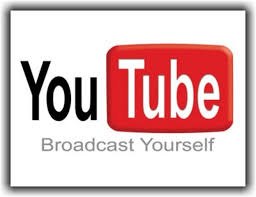YouTube was founded by Steve Chen, Chad Hurley, and Jawed Karim. The trio were early employees of PayPal, which left them enriched after the company was bought by eBay. Hurley had studied design at the Indiana University of Pennsylvania, and Chen and Karim studied computer science together at the University of Illinois Urbana-Champaign.
According to a story that has often been repeated in the media, Hurley and Chen developed the idea for YouTube during the early months of 2005, after they had experienced difficulty sharing videos that had been shot at a dinner party at Chen's apartment in San Francisco. Karim did not attend the party and denied that it had occurred, but Chen remarked that the idea that YouTube was founded after a dinner party "was probably very strengthened by marketing ideas around creating a story that was very digestible".
Karim said the inspiration for YouTube came from the Super Bowl XXXVIII halftime show controversy, when Janet Jackson's breast was briefly exposed by Justin Timberlake during the halftime show. Karim could not easily find video clips of the incident and the 2004 Indian Ocean Tsunami online, which led to the idea of a video-sharing site. Hurley and Chen said that the original idea for YouTube was a video version of an online dating service and had been influenced by the website Hot or Not. They created posts on Craigslist asking attractive women to upload videos of themselves to YouTube in exchange for a $100 reward. Difficulty in finding enough dating videos led to a change of plans, with the site's founders deciding to accept uploads of any video.
YouTube began as a venture capital–funded technology startup. Between November 2005 and April 2006, the company raised money from various investors, with Sequoia Capital and Artis Capital Management being the largest two. YouTube's early headquarters were situated above a pizzeria and a Japanese restaurant in San Mateo, California. In February 2005, the company activated www.youtube.com. The first video was uploaded on April 23, 2005. Titled "Me at the zoo", it shows co-founder Jawed Karim at the San Diego Zoo and can still be viewed on the site. The same day, the company launched a public beta and by November, a Nike ad featuring Ronaldinho became the first video to reach one million total views. The site launched officially on December 15, 2005, by which time the site was receiving 8 million views a day. Clips at the time were limited to 100 megabytes, as little as 30 seconds of footage.
YouTube was not the first video-sharing site on the Internet; Vimeo was launched in November 2004, though that site remained a side project of its developers from CollegeHumor. The week of YouTube's launch, NBC-Universal's Saturday Night Live ran a skit "Lazy Sunday" by The Lonely Island. Besides helping to bolster ratings and long-term viewership for Saturday Night Live, "Lazy Sunday"'s status as an early viral video helped establish YouTube as an important website. Unofficial uploads of the skit to YouTube drew in more than five million collective views by February 2006 before they were removed when NBCUniversal requested it two months later based on copyright concerns. Despite eventually being taken down, these duplicate uploads of the skit helped popularize YouTube's reach and led to the upload of more third-party content. The site grew rapidly; in July 2006, the company announced that more than 65,000 new videos were being uploaded every day and that the site was receiving 100 million video views per day.
By February 2017, one billion hours of YouTube videos were being watched every day, and 400 hours worth of videos were uploaded every minute. Two years later, the uploads had risen to more than 500 hours per minute. During the COVID-19 pandemic, when most of the world was under stay-at-home orders, usage of services like YouTube significantly increased. One data firm which estimated that YouTube was accounting for 15% of all internet traffic, twice its pre-pandemic level. In response to EU officials requesting that such services reduce bandwidth as to make sure medical entities had sufficient bandwidth to share information, YouTube and Netflix stated they would reduce streaming quality for at least thirty days as to cut bandwidth use of their services by 25% to comply with the EU's request. YouTube later announced that they would continue with this move worldwide: "We continue to work closely with governments and network operators around the globe to do our part to minimize stress on the system during this unprecedented situation."
|


